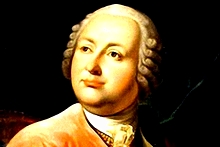Petersburg pioneers: Scientists and inventors in St. Petersburg
St. Petersburg's founder, Peter the Great, was a passionate advocate of scientific discovery and technological advancement, determined to attract the best minds from all across Europe to his new city and to transform Russia from an ultra-religious feudal backwater on the very periphery of European culture into a modern state at the forefront of technological progress.
By the end of the 19th century, Peter's dream had been fully realized, and St. Petersburg was unquestionably one of Europe's leading centres of scientific research. The great scientists and inventors that worked in St. Petersburg were mostly born far away from the city, but the Academy of Sciences and St. Petersburg University brought them together and fostered their talents, facilitating an enormous collective contribution to the span of human knowledge.
The father of Russian science, Mikhail Lomonosov famously walked to Moscow from his village in the far north to gain an education, and went on to become a true colossus of the Enlightenment, excelling in dizzying number of scientific and humanitarian disciplines, as well as pioneering public and higher education in Russia.
The Russian Marconi, Popov is hailed in Russia as the inventor of the radio. While this can, in part, be ascribed to a Soviet propaganda effort, it is nonetheless true that Popov was developing almost identical technology simultaneously with his Italian counterpart, and he went on to pioneer its use for naval communications.
The creator of the periodic table of the elements, Dmitry Ivanovich Mendeleev was a uniquely talented Russian chemist who, from humble beginnings in Siberia, excelled in a number of scientific fields. He was a free-thinking and at times controversial figure, whose scientific vision had an almost mystical quality.
Russia's first Nobel laureate, Ivan Petrovich Pavlov was destined to follow his father into the priesthood, but instead chose to study natural sciences. His work in physiology, and especially his formulation of the concept of conditional reflex, brought him international fame and was hugely influential far beyond the world of medicine.





